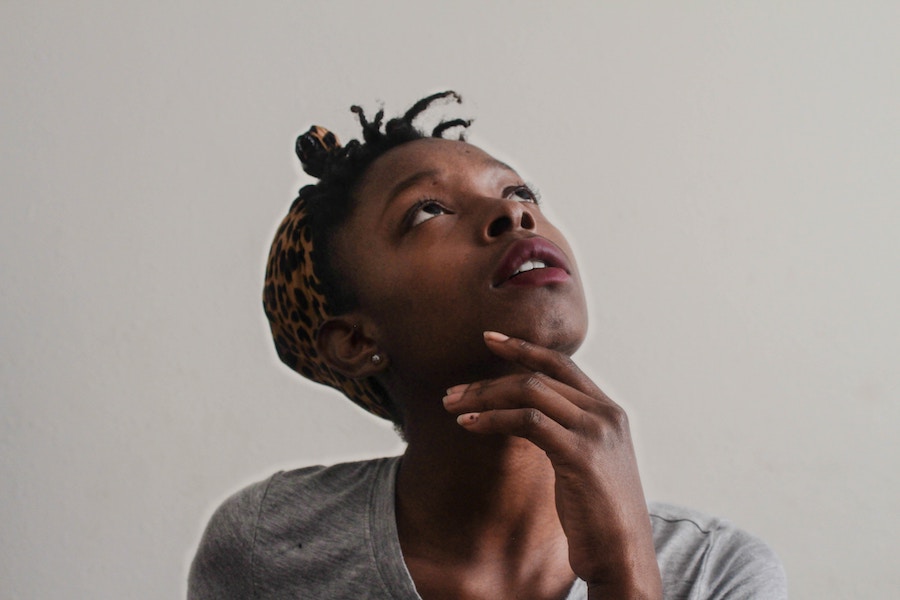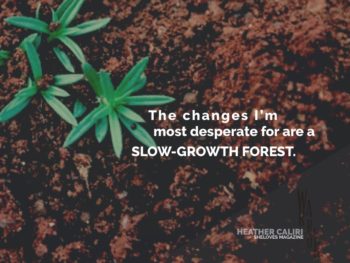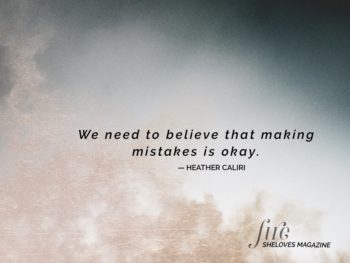
I used to be afraid of asking questions about my faith.
I avoided reading up controversial topics because the arguments might chip away at beliefs. I tried not to notice my cynicism or bitterness about Christian media or church services or spiritual practices.
The problem was that the longer I ignored my questions, the weaker my faith got. So I started asking them, unwillingly.
When I finally started asking questions, I went for the jugular. I asked,
Do I want to be a Christian? Really?
This was the question that seemed too terrifying to ask myself. After all, what if the answer was no?
My marriage was founded on faith. I taught my kids its principles. I devoted umpteen hours to growing, learning and maintaining beliefs, built community on what I’d thought was solid.
I could undo all of that with one honest question.
The day I finally broke down and asked myself this, I was at the end of my rope. I disliked the Bible. I was sick and tired of church services. I avoided prayer and was suspicious of other Christians. What was left of my faith, anyway?
That night, sleeplessness stalked me. Finally, I got out of bed, bent forward onto the floor, and to my surprise, I started crying out to God.
Please Lord, I said. I don’t want to leave you.
I had thought my love for Jesus had grown cold. But on the contrary, it had just been buried under my fear and avoidance. Underneath my cynicism, I knew that Jesus could bring my dead bones back to life.
When I realized I wanted to believe, despite how difficult it was, believing became a joyful choice. I wasn’t a Christian because others expected it or to win brownie points. I was following God because he was the desire of my heart.
After I realized I very much wanted to stay a Christian, another question occurred to me. What kind of a Christian? And was that an okay kind of Christian to be? Which led me to ask:
What does “orthodox” mean?
When I wondered if I wanted to be a Christian anymore, it turns out the real question was whether I wanted to still be conservative.
I want to take faith seriously, and not just cobble together my druthers and call it Jesus. I was also terrified of people not respecting my faith if it didn’t look like theirs.
So I crammed myself inside the kind of faith I saw around me, mostly Evangelical models. And those models are lovely, and life-giving, and still part of me, except when they aren’t.
So I started reading, exploring each question that made the label “conservative” or “evangelical” trouble me.
I looked into the history of Christianity. Got books on the Bible and hermeneutics. Read blogs of people asking questions like me.
In the end I realized that “Christian” or even “Evangelical” were words with a broad array of meanings. I might not fit everywhere, but I definitely fit somewhere.
I didn’t have to wear a straightjacket anymore.
Feeling comfortable with my quirky faith wasn’t enough, though. How then was I going to seek God?
What would “enough” look like when it came to spending time with Jesus?
I’ve stumbled through spiritual disciplines for most of my life, and the biggest hindrance is perfectionism, not laziness.
I was good at trying.
But I was terrible at grace.
A few books from Brene Brown under my belt, I knew that the antidote to perfectionism was “enough”. I needed an easy yoke.
So I made myself a litmus test for spiritual disciplines: if I didn’t enjoy it consistently, I didn’t need to do it.
Joy and peace have become my barometer instead of numbers, minutes, or “discipline.”
Finding my eagerness to seek God again has been transformative. One by one, I’m starting to be willing to try new disciplines, spend more time in prayer, and feel the desire to reach out to the Almighty with everything I have.
But one spiritual discipline still made me anxious. And it was a biggie. So I asked this:
Why don’t I enjoy the Bible?
The Everest of love/hate relationships in my spiritual life was the Bible. It was the discipline the church said I couldn’t do without, but that I always had trouble reading joyfully and consistently.
But why?
This question sent me poking back into my past. And what I found there was spiritual abuse.
It’s aftermath? There are large chunks of the good Book that trigger pain and anxiety for me.
Unwilling to abandon the Bible altogether, I started concentrating on the portions that didn’t reinjure me, like the Psalms. And for the parts I couldn’t read, I read posts and books about them, hoping to reframe the way I interpreted them.
And when “reading” and “studying” still proved difficult, I tried something radically different.
I tried “crafting” the Bible.
How? I’m cutting apart a Bible from a painful time in my faith and reshaping it into something beautiful and life-giving.
I very much hope to return to reading the Bible—the entire Bible—someday. But until then, I want to keep encountering God in His Word, however I can.
For a long time, I was afraid to ask questions about my faith. I thought questions might lead to slippery slopes or backsliding. Questions might undo the spirituality I clung to.
Instead, questions opened doors. Unloosed knots. Unlocked chains.
Questions set me free. Questions unleashed joy.
And questions set me down firmly in the middle of God’s abundant presence.
This post originally appeared at Julie Holly’s site. Photo by Tachina Lee on Unsplash














 When theology is like a bad diet
When theology is like a bad diet